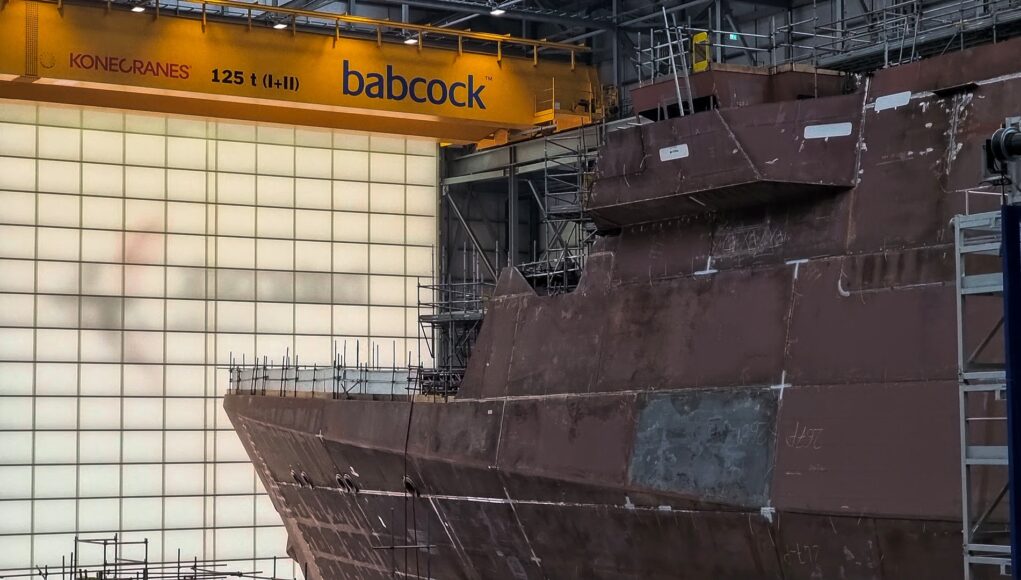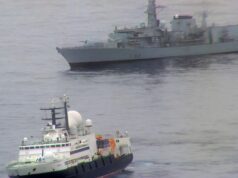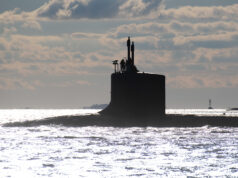In response to a parliamentary question from Rebecca Paul, Conservative MP for Reigate, regarding the proportion of Ministry of Defence (MOD) procurement contracts awarded to UK-based manufacturers in the past 12 months, Minister Maria Eagle provided detailed figures.
Eagle revealed that between 16 December 2023 and 15 December 2024, a total of 2,266 contracts were created on the MOD’s Contract Purchasing and Finance (CP&F) system. Of these, 583 contracts (26%) were recorded with a known prime contract location. Among these:
- 531 contracts (91%) had a UK-based prime contract location.
- 52 contracts (9%) were marked as being based in a foreign country.
In terms of contract value, £3.85 billion of the £20.68 billion total (19%) was associated with a known location. Of that, £2.99 billion (78%) was tied to contracts with a UK-based prime location, while £0.85 billion (22%) went to foreign-based contracts.
In short, due to incomplete data, it’s unclear how much total UK defence spending stays domestically, but of the 19% with a known location, 78% is spent within the UK.
Eagle highlighted the significance of the UK’s defence manufacturing industry, stating: “The UK’s defence manufacturing industry is vital not only to our national security but to our prosperity and economic growth.”
She also highlighted the role of the Government’s new Defence Industrial Strategy in aligning national security needs with economic growth goals.
Ammunition Procurement and Stockpile Resilience
In a related development, Rebecca Paul, MP for Reigate, queried the MOD on efforts to replenish precision-guided munitions and enhance domestic production capacity. Eagle outlined the MOD’s ongoing initiatives:
“The Ministry of Defence is carefully investing to improve the health of our munitions stockpiles, including precision-guided munitions, within the available financial envelope. Through investing in munitions, we seek to grow domestic production, strengthen our resilience and self-reliance, boost our sovereign defence industrial capacity, increase our exports, and create good jobs in the UK.”
Eagle also noted that the department’s approach will evolve as the Strategic Defence Review progresses.














Seems odd that MOD is spending “our” money and doesn’t fully document where it is being spent.
A number of countries are pretty ridged in not only ensure “in-country” content spend, but also who and where it is being paid to.
Knowing only a quarter of total spending needs to be investigated and improved on.
The minister should be ashamed for giving such useless information. For a country with a chronic trade deficit, it is vital to know where public money is spent. It shouldn’t be difficult to find out so that better informed decisions can be made.
It can’t be difficult to determine, for example,how much of a new frigate cost disappears overseas.
Absolutely shocking. Surely there’s some kind of record keeping going on?
No wonder the MoD is so crap at spending efficiently or effectively, and why with a £55 billion a year budget we can’t have an effective fighting force. The MoD needs some serious changes to how it does things.
At a time when taxpayers are having to fork out more and more, and at a time where we’re facing the biggest threats to Europe in decades, every sodding penny needs to be accounted for!
How can one of the biggest spenders in the world on defence be so crap at spending and managing the money ? 😕
Absolutely. This site often reports the award of defence contracts in the USA. Almost always, the costs are broken down to show in detail the locations of where the work will be carried out. Why can’t the UK provide similar levels of information?
Re ‘in-country’ spend – not easy. A lot of items are manufactured from a number of components, some of which may have a foreign origin for various reasons – cost, availability, etc. In my case I make a product (very small scale at a hobby level) so the things I make are ‘Made in the UK’. Furthermore, I buy by raw materials from a British company, so UK supplier. However, they source the major material from Mexico – so does that eventually mean that my product isn’t British? When you start breaking things down it’s often impossible to guarantee that things are ‘British’. How far do you go back? Every nut and bolt manufactured in the UK? but what about the steel they are made from? What about a basic material like paper. Is all paper made from wood grown in the UK? The fact is that we can’t manufacture every item ourselves, nor can we produce all the raw materials we need. So no, we can’t know how much of defence spending is from British sources. We’re really limited to a few headline end processes…
You establish what are critical core supply chain elements and ensure that there is a sovereign capability/ supplier. This means you need a Defence industrial plan – which we haven’t had for about 35 years.
Also, companies like GD claim UK contracts but manufacture vehicles like Ajax in Spain and their profits and management charges flow to the USA etc etc
I have no idea where you get the idea that we haven’t have a Defence industrial plan for 35 years. We had a Defence and Security industrial Strategy published in 2021 along with an associated plan, and a new Defence Industrial Strategy is being worked on at the moment with Statement of Intent published last month for public consultation.
Slightly disingenuous there LB. AJAX hulls are manufactured in Spain, the whole vehicle is then assembled in Wales from a majority of UK sourced components. The Welsh based workforce (and other GDUK locations all contribute to the local economy and pay UK taxes.
cheers
Slightly disingenuous also, the gun, most of the expensive bits are European made..but bought from UK fronts
Ajax is as British, as Sainsbury’s French wine is British
And it was bought under the old MOD system that got us the Swift instead of the Hunter, the SA80 instead of Aug a rifle that worked. Boxer is a classic, designed with half the work done in Britain, then cancelled and all gifted to Germany, then nearly 30 years later, bought at twice the price…Simples
I worked on the MSVS contract to supply trucks to Canada back in about 2010.
It was all about national content and in country spend. Tyres made in Canada still had to account for the rubber coming from S E Asia.
We should at least know the registered address of the places they are sending monies to.
The question is how many of the 2,566 contracts are given to U.K. based companies.
I don’t know why the MOD can’t answer this.
is that a lot of the contracts are given to outside people to manage and procure?
Surely every contract has to provide an address, place of manufacture etc etc.
I’m confused as to why this answer is so vague
Impossible to really calculate, money paid to privately held companies like BAE or MDBA , how much stays in the UK? some goes to world wide subcontractors, some to shareholders which are also international and/or private sector… you can only count jobs and paid taxes
If its bae or mdba then the prime contract location would be known. The answer wasn’t about the full supply chain used by them.
I am baffled by the answer, how can they not know where the money is going. I get a few % might be unknown by poor records or errors but 75% just seems nuts.
I was referring to term “stays in the UK” … for me it’s quite blurred, if for instance BlackRock, Inc. has 10% of the total ownership of BAE, what portion of any deal “stays in the UK” in terms that it benefits the UK? because if money ends up in facilities outside the UK and employees outside the UK are paying taxes to their government, e.g. the Archer Artillery system that is manufactured in Sweden, this money is not really staying here…
The methodology is lacking here but you also got 2 other options: they don’t know or are embarassed to admit high volume of spendings wich don’t remain in UK.
A modern manufacturing and logistics system has the data; materials, bill of materials, vendors, source of supply, contracts, purchase orders, shipping notices, finance postings, so they know exactly which materials make up each product, who supplied the components, where they came from, at what cost. It’s all recorded and reported.
On the Crossrail programme, the largest in Europe, funded by Department of Transport and Transport for London so public expenditure, the budget was 97% spent in the UK.
Ministry of Defence could do the same…
Do fuel costs count as UK spending, if bought from from a UK company? Given that 90% of that money would ultimately end up in the hands of some foreign oil baron, this would seem misleading. Just an extreme example of how difficult such analysis can be.
Slightly O/T but Starmer has announced we are sending Ukraine 150 Sheffield made artillery barrels.
Totally agree with keeping spending within UK for our defense needs whilst strengthening the local UK economy and worker skills base. The UK needs to be as self-sufficient as possible as you cannot rely on anyone other than ourselves and we should back both UK manufacturing and farming.
Further unavoidable foreign spending must be offset by reciprocal foreign spending or offset manufacturing where suppliers run their factory in the buyers country. Opening that factory a qualifying criteria for the contract…
AI (UK based), robots and fusion energy research should be the government’s top priority to develop and keep it local to the UK. I know the current government has thrown in a few quid in this direction but it is just not enough. Imagine if we purchased & became reliant on Elon Musk’s (or anyone else) tech and one day he just decided to switch it all off remotely, the UK would be up the swanny without a paddle. This tech is evolving so, so fast and the UK government seems to be stuck in the mud over these issues.
Contract performance criteria: cannot be remotely disabled.
What does ITAR say on that, I wonder…